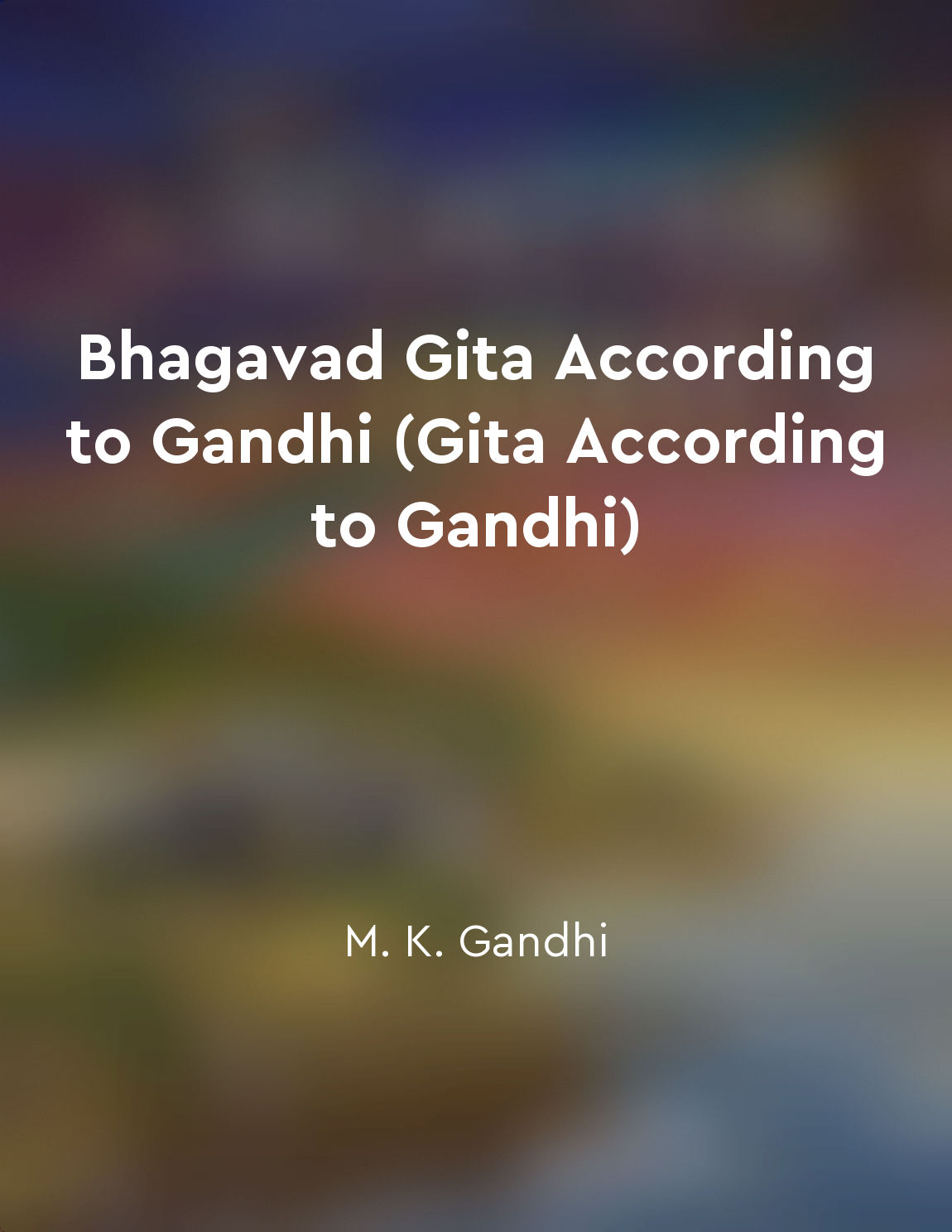Audio available in app
Let go of the need to control outcomes from "summary" of Be As You Are by Sri Ramana Maharshi
The key teaching that runs through the wisdom of the sages is the importance of surrendering the ego, the sense of personal doership. The ego is the source of all suffering and bondage. It is the belief that we are the doer, the one in control of our lives. This belief creates a sense of separation from the natural flow of life, leading to anxiety, stress, and fear. By letting go of the need to control outcomes, we release ourselves from the grip of the ego, allowing life to unfold as it is meant to. When we try to control outcomes, we are essentially trying to control life itself. This is a futile endeavor, as life is inherently unpredictable and uncontrollable. Trying to control outcomes only leads to frustration and disappointment, as we are constantly fighting against the natural flow of life. By letting go of the need to control outcomes, we align ourselves with the natural rhythm of life, allowing things to unfold in their own time and in their own way. Surrendering the need to control outcomes does not mean that we become passive or indifferent. It simply means that we let go of our attachment to specific outcomes and instead focus on doing our best in each moment. We take action without being attached to the results, knowing that whatever happens is ultimately beyond our control. This attitude of surrender allows us to be fully present in each moment, free from the burden of trying to control the future. In the Bhagavad Gita, Lord Krishna teaches Arjuna the importance of performing one's duty without attachment to the fruits of one's actions. He tells Arjuna to surrender the ego and offer all actions to the divine. This teaching emphasizes the importance of letting go of the need to control outcomes and instead focusing on the present moment. When we surrender our attachment to specific outcomes, we open ourselves up to the infinite possibilities of life, allowing for greater peace, joy, and fulfillment.Similar Posts
Strive for selfimprovement
The concept of self-improvement is a central theme in the Bhagavad Gita, where Lord Krishna urges Arjuna to strive for personal...
Accept yourself unconditionally
Accepting yourself unconditionally means loving and appreciating yourself exactly as you are, without any requirements or condi...
The journey towards selfrealization is never-ending
The path to self-realization is like an endless river flowing through the mountains. As we navigate through life, we encounter ...
Connect with a community of likeminded souls
In life, we often find solace and support in connecting with others who share similar beliefs, values, and interests. This sens...
The essence of Geeta lies in its profound teachings on duty and righteousness
The teachings of the Bhagavad Gita, as expounded by Lord Krishna to Arjuna on the battlefield of Kurukshetra, revolve around th...

Understanding one's duty and living a life of righteousness is crucial
The Bhagavad Gita emphasizes the importance of understanding one's duty and living a life of righteousness. This concept is cen...
Purify the mind through selfreflection and introspection
To attain a state of purity in our minds, it is essential to engage in self-reflection and introspection. This process involves...

Renounce selfish desires
The teaching of renouncing selfish desires is central to the Bhagavad Gita. According to this sacred text, selfish desires are ...

Discerning between good and bad actions
The Bhagavad-gita teaches us the importance of discerning between good and bad actions. In this sacred scripture, Lord Krishna ...

Follow the path of duty and righteousness
The path of duty and righteousness is the central theme of the Bhagavad Gita. It is emphasized that one must always act in acco...
